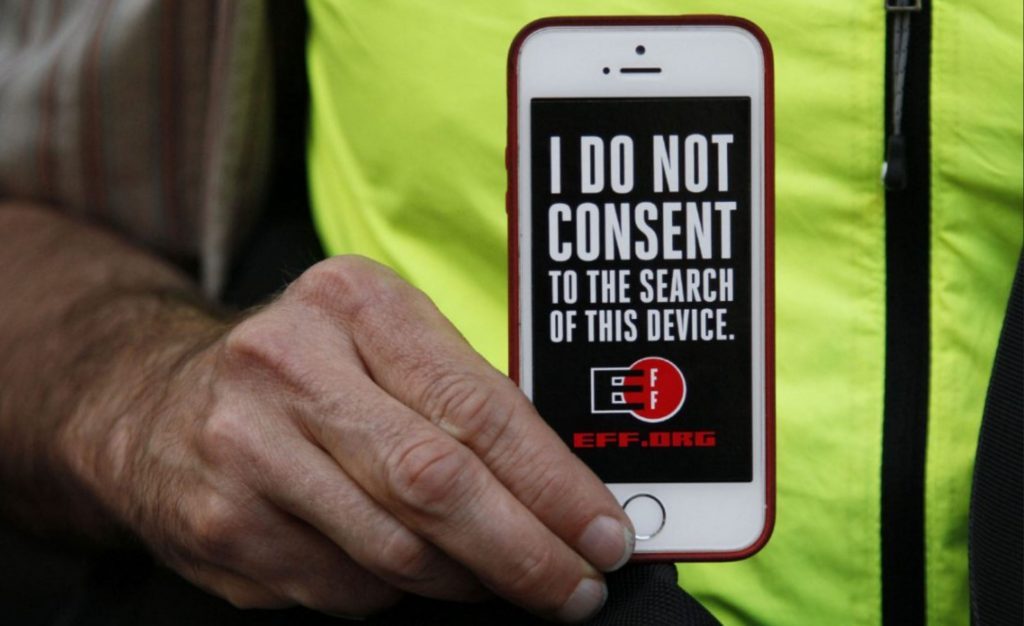 WASHINGTON, D.C.—The Electronic Frontier Foundation (EFF) today asked the Supreme Court to overturn a ruling undermining Fifth Amendment protections against self-incrimination and find that constitutional safeguards prevent police from forcing people to provide or use passcodes for their cell phones so officers can access the tremendous amount of private information on phones.
WASHINGTON, D.C.—The Electronic Frontier Foundation (EFF) today asked the Supreme Court to overturn a ruling undermining Fifth Amendment protections against self-incrimination and find that constitutional safeguards prevent police from forcing people to provide or use passcodes for their cell phones so officers can access the tremendous amount of private information on phones.
At stake is the fundamental principle that the government can’t force people to testify against themselves, including by revealing or using their passcodes.
“When the government demands someone turn over or enter their passcode, it is forcing that person to disclose the contents of their mind and provide a link in a chain of possibly incriminating evidence,” said EFF Surveillance Litigation Director Andrew Crocker. “Whenever the government calls on someone to use memorized information to aid in their own prosecution—whether it be a cellphone passcode, a combination to a safe, or even their birthdate—the Fifth Amendment applies.”
The Illinois Supreme Court in the case People v. Sneed erroneously ruled that the Fifth Amendment doesn’t apply to compelled entry of passcodes because they are just a string of numbers memorized by the phone’s owner with minimal independent value—and therefore not a form of testimony. The Illinois court erred further by ruling that the passcode at issue fell under the dubious “forgone conclusion exception” to the Fifth Amendment because the government agents already knew it existed and the defendant knew the code.
Federal and state courts are split on whether the Fifth Amendment prohibits police from compelling individuals to unlock their cell phones so prosecutors can look for incriminating evidence, and when and how the “forgone conclusion exception” applies. Only the Supreme Court can resolve this split, EFF said in a brief today.
“The Supreme Court should find that Fifth Amendment protection against self-incrimination extends to the digital age and applies to turning over or entering a passcode,” said EFF Staff Attorney Lisa Femia.* “Cell phones hold an unprecedented amount of our private information and device searches have become routine in law enforcement investigations. It’s imperative that the court make clear that the Fifth Amendment doesn’t allow the government to require people to hand over their passcodes and assist in their own prosecution.”
*Admitted in New York and Washington, D.C., only; not admitted in California
For the brief: https://www.eff.org/document/sneed-v-illinois-eff-brief
Source: EFF
Become a Patron!
Or support us at SubscribeStar
Donate cryptocurrency HERE
Subscribe to Activist Post for truth, peace, and freedom news. Follow us on SoMee, Telegram, HIVE, Minds, MeWe, Twitter – X, Gab, and What Really Happened.
Provide, Protect and Profit from what’s coming! Get a free issue of Counter Markets today.

Be the first to comment on "EFF to Supreme Court: Fifth Amendment Protects People from Being Forced to Enter or Hand Over Cell Phone Passcodes to the Police"